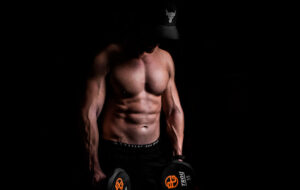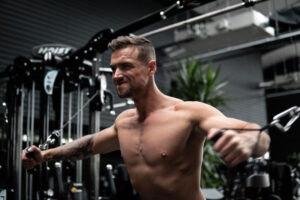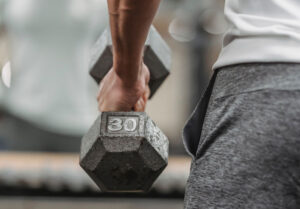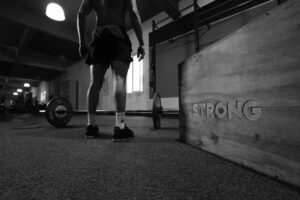Look, when you’re bodybuilding, there’s no magic formula that will turn you into a competitor overnight. It takes years of hard work, trial and error, and eating right to get to your dream physique. All the advice, top tips and recommendations won’t replace you putting in that work.
That being said, learning from other people’s recommendations will help you to skip over some of the mistakes and get where you’re going a little bit faster. One of our top recommendations is always to get your workout and training routine down, mainly to help you recover and keep going with your performance.
So, let’s jump into it. We’ve put together the ultimate guide to split training and incorporating push and pull workouts.
Also Read: Short on time? Tips for short & effective workouts
When you’re putting your training plan together, there are a few things that you need to consider:
- Your training level – Beginners won’t be as intense in their training as advanced lifters, but they’ll often work out more frequently.
- Your goals – Are you trying to get fit, maintain a shape, or chase after longer-term physique changes?
- Your availability – Are you going to commit to working out every day? Or can you only hit a few times a week? Although we’d recommend that you’re in the gym at least three days a week.
- Your rest and recovery – Depending on your lifestyle, activity level, and recovery, you may need more or fewer rest days. Don’t underestimate rest; most of your growth will occur away from the gym.
- Your weaknesses – Do you have a body part that you need to improve? Is there one weaker side that could benefit from some single sets?
What is a push and pull split training plan?

When you’re working out, there are two fundamental moves: push and pull, and you split your training by working on all of your push muscles and all your pull muscles on a different day.
Also Read: What is Tesamorelin and are there any side effects?
Some people might do an upper-body push day, and then the next day would be an upper-body pull and then leg day. Or you could do a full-body push day, followed by a full-body pull day. Need some inspiration? Keep reading, below; we’ve put together some push/pull split training plans.
Push and pull training plan examples

Below, we’ve put together the five most common training splits. We’ve started with the easiest, and the training plans become more advanced as they go on. As you gain experience and become more advanced, you’ll find that you’re using more exercises, intensity, or volume for each body part, which may change your rest.
Whole-body split
Training every major muscle group in a single workout is where many beginners start, usually doing a single exercise per body part for a few sets. This keeps the volume intentionally low, and then you’ll be able to bounce back and get back into the gym quicker; this is how you keep building gains.
Another reason that volume and intensity are low for beginners is to limit the next-day soreness, discouraging new lifters.
Day 1 – All muscle groups—1 exercise per muscle group with three sets, 10-12 reps
Day 2 – Rest Day
Day 3 – All muscle groups—1 exercise per muscle group with three sets, 10-12 reps
Day 4 – Rest Day
Day 5 – All muscle groups—1 exercise per muscle group with three sets, 10-12 reps
Days 6-7 – Rest Days
Popular safe and legal steroid and SARMs alternatives
Upper- And Lower-Body Split
The next step is to cover the entire body over two days instead of one. This allows you to dedicate more time to each set of muscles, and you typically would split this into
upper-body muscle groups (chest, back, shoulders, arms) and lower-body muscle groups (quads, glutes, hamstrings, calves, abs).
Also Read: Sr9009 benefits and side effects
By increasing the volume of exercises for each body part, you’ll hit a particular area from different angles while also increasing the intensity of your workouts.
Day 1 – Upper-body —2 exercises for each muscle group with three sets, 6-8 and 10-12 reps
Day 2 – Lower-body —2 exercises for each muscle group with three sets, 6-8 and 10-12 reps
Day 3 – Rest Day
Day 4 – Upper-body —2 exercises for each muscle group with three sets, 6-8 and 10-12 reps
Day 5 – Lower-body —2 exercises for each muscle group with three sets, 6-8 and 10-12 reps
Days 6-7 – Rest Days
Push/Pull/Legs
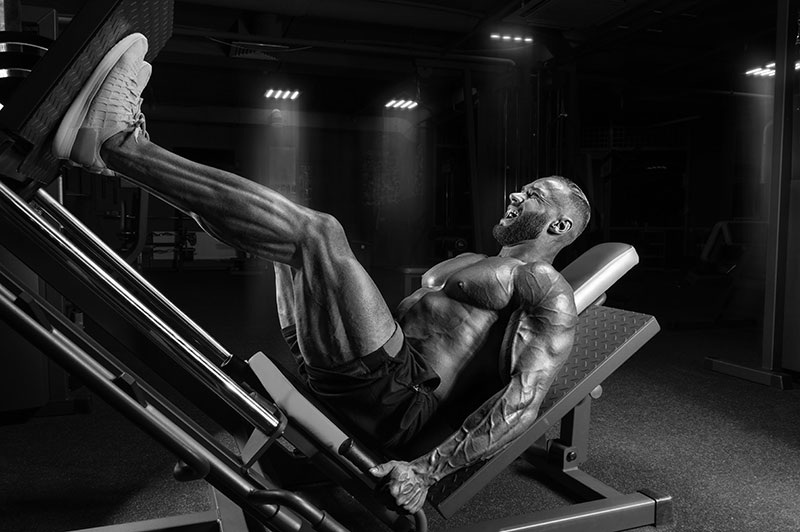
As you gain momentum and more experience, it’ll allow you to do more volume for each muscle group, enabling you to spread the entire body over three days.
The most popular way to spread the whole body out is to do all the pushing muscles together (chest, shoulders, and triceps), pulling muscles together (back and biceps), and then leg exercises. Your abs can be done on any of these days.
Day 1 – Chest, shoulders, triceps—3 exercises each with three sets; 6-8, 8-10 and 10-12 reps
Day 2 – Back, biceps—3 exercises each with three sets; 6-8, 8-10 and 10-12 reps
Day 3 – Legs—4 exercises each with three sets; 6-8, 8-10 and 10-12 reps
Day 4 – Chest, shoulders, triceps— 3 exercises each with three sets; 6-8, 8-10 and 10-12 reps
Day 5 – Back, biceps—3 exercises each with three sets; 6-8, 8-10 and 10-12 reps
Day 6 – Legs—4 exercises each with three sets; 6-8, 8-10 and 10-12 reps
Day 7 – Rest Day
Four-Day Split

If you’re progressing to a four-day split, you know you’re getting serious now. Because you’re training fewer muscles per day, you can dial up the volume and intensity of your training. This is most commonly spread across a whole week with three rest days.
An efficient way to group your body parts for training is to pair a large muscle group with a smaller one, such as your chest and triceps (both pushing muscles). Because the triceps are already working during many of your chest exercises, you simply hit them afterwards. The same reasoning goes with the back and biceps.
Day 1 – Back and biceps—4 for back, 3 for biceps exercises, 3-4 sets, 6-15 reps
Day 2 – Chest, triceps—4 for chest, 3 for triceps exercises, 3-4 sets, 6-15 reps
Day 3 – Rest Day
Day 4 – Legs—5 exercises, 3-4 sets, 6-15 reps
Day 5 – Shoulders—4 exercises, 3-4 sets, 6-15 reps
Days 6 & 7 – Rest Days
Five-Day Split
This is a very advanced split that essentially gives each body part its own training day, allowing you to increase both volume and intensity to your maximum without worrying about any other body part. In this plan, you could give a muscle group an intense workout but still be in and out of the gym in an hour.
Day 1 – Chest—4-5 exercises, 3-4 sets, 6-15 reps
Day 2 – Back—5 exercises, 3-4 sets, 6-15 reps
Day 3 – Shoulders, upper traps—4-5 exercises, 3-4 sets, 6-15 reps
Day 4 – Legs—5-6 exercises, 3-4 sets, 6-15 reps
Day 5 – Biceps, triceps—3-4 exercises each, 3-4 sets, 6-15 reps
Day 6-7 – Rest
Final tips for split training
We haven’t included smaller muscle groups like abs and calves in our training splits as these smaller muscle groups recover quickly. You’ll also need to add your cardio to all of the routines.
It’s time to get brutal

Ready to jump into one of these training plans, make gains, enhance your performance in the gym and see results? Of course, you are.
Well, you can get all that and more with Brutal Force. Our 100% natural bulking supplements and SARMs are entirely legal, safe, and free of any side effects. And there’s no prescription in sight!
It’s time to get BRUTAL – the right way.






